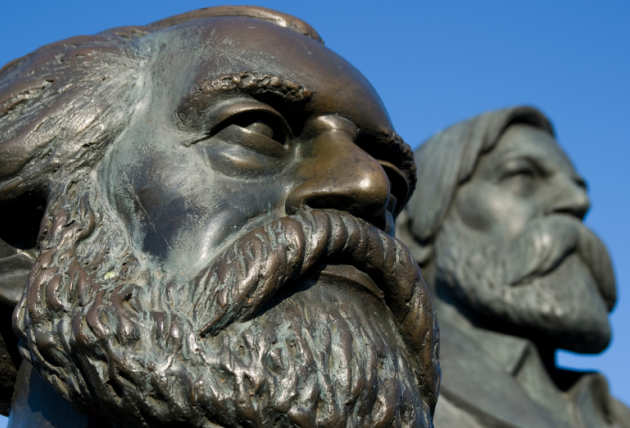Business & Economic Ideas

Economic analysis and its application to business and management
Module details
- Offered to 2nd Years
- Mondays 16.00-18.00
- Planned delivery: On campus (South Kensington)
- Two-term module, worth 5 ECTS
- Available to eligible students as part of I-Explore
- Extra Credit, or Degree Credit where your department allows
This module is an introduction to a selection of influential business and economic thinkers over the past two hundred years. It covers a variety of forms of business activity, such as manufacturing, commerce, finance, retail, and the public sector.
It examines how exterior factors, such as war and trade, as well mutually related developments in intellectual and technological innovation, have influenced the trajectory and content of business and economic ideas.
It considers thinkers from a variety of geographic locations and political perspectives, and analyses how the thought of these thinkers has been interpreted in different ways over time.
Information blocks
Learning outcomes

On successful completion of this module, you will be able to:
- Explain and apply key concepts from the history of business and economic thought
- Work in a team on a selected topic in economics
- Undertake independent research into a topic in economics
- Critically assess ideas and schools of thought in business and economics
Indicative core content

- Theory, research and knowledge in the Social and Natural Sciences
- Theories of trade and trade protection
- Innovation and innovation policy
- The role of economic analysis in the planning of healthcare provision
- Critical evaluation of tools to promote innovation
- Alternative approaches to regulation of the environment with application to fracking.
- Market regulation of dominant firms and the privatisation debate
- Key debates in macroeconomic theory and policy
- Critical appraisal of mainstream economics
- Large firms, strategy and structure
- The development and practice of management. Leadership and change management
- Culture, management and international strategy
- Challenges of the global and digital age
Learning and teaching approach
Most classes include discussion time, organised group discussions around both pre-set and in-class reading. Sometimes you will be in self-selected groups, and sometimes you will be randomised into groups in order to attain better group cohesion. In some classes we undertake paired/group activities such as quality of life assessment, running the UK economy and identifying leadership style.
Summative assessments are submitted to the module VLE and written feedback will be supplied to you via the module VLE. Feedback from each assessment will be designed to assist you in subsequent assessments.
Assessment
- Coursework: Group report (1,600 words) (20%). Due at the end of Term 1
- Coursework: Individual essay (1,500 words) (40%). Due at the start of Term 2
- Coursework: Individual essay (1,500 words) (40%). Due after the end of Term 2
Key information
- Requirements: You are expected to attend all classes and undertake approximately 85 hours of independent study in total during the module. Independent study includes reading and preparation for classes, researching and writing coursework assignments and preparing for other assessments.
- This module is designed as an undergraduate Level 5 module. For an explanation of levels, view the Imperial Horizons Level Descriptors page.
"I particularly learned a lot from this module and we had interesting conversations."
"These lectures are the highlight of my week."


